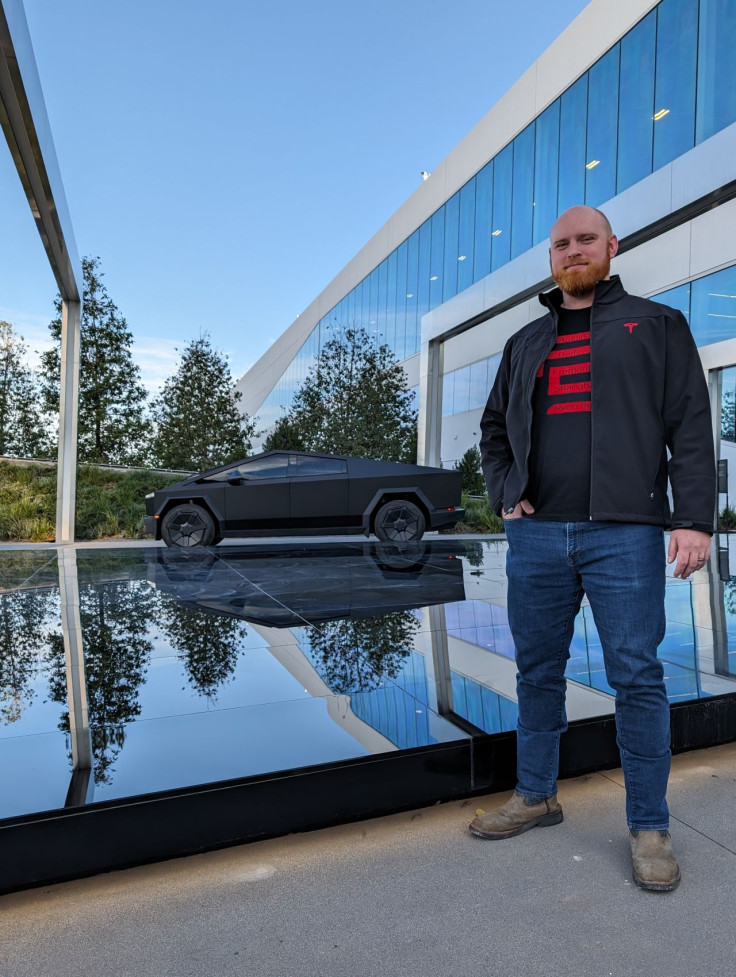Ex Tesla Employee Paints A Positive Picture Of Elon Musk, Says The CEO Doesn't Force Them To Work Extra Hours
Cameron Sralla's tenure at Tesla ended after two years

In April this year, Tesla announced a workforce reduction of 10 percent, impacting numerous tech professionals worldwide. The dreaded "Dear Employee" email became a reality for many, forever altering their careers.
Following layoffs in April, a subsequent email from Tesla informed affected employees of errors in their severance packages. Several former employees, including Austin-based Cameron Sralla, took to social media to share their experiences.
Much to the surprise of many, Sralla actually has good words to say about his former company.

"Speaking specifically, I didn't receive any marching orders specifically from Elon," he said. "My role was more limited to my specific job function, which was with the factory software team.
"Sralla further clarified that Tesla never implied that "his performance or ability to do his job correctly was based on if he needed to work extra hours or something like that."
Sralla claims that in his experience and based on observations of colleagues, employees often worked extra hours. However, the former Tesla engineer asserts these were voluntary decisions and not the result of external pressure from Musk or somebody else.
Elon Musk Deadlines
Musk is a controversial figure known for his unconventional leadership style. A recurring criticism centres on his aggressive deadlines, often described as "insane" by former employees, as documented in Walter Isaacson's biography of Musk.
This approach has divided opinions, with some praising it for fostering innovation and rapid progress, while others criticise it for creating an unhealthy work environment. In light of Musk's reputation for demanding deadlines, India Today directly inquired of Sralla if he had encountered similar situations that resulted in sleepless nights.
Starting at Tesla in September 2022 as a factory software support technician, Sralla recently shared on LinkedIn that despite the layoffs, he believes the company is "selling magic." In a telephone conversation, India Today asked him about his Tesla experience.
Sralla remarked that with Tesla, Musk has built a company that is "different from any other he has worked for."
"It has been mentioned in other places, but the density of talent and ability of the team is unbelievable. It was also a company that generally rewarded competence over everything else, which is actually rare in big companies," Sralla told India Today.
Sralla highlighted Tesla's unique position: at the intersection of a grand mission, a talented team, and a culture that empowers individuals to take on significant responsibility if they demonstrate their capabilities.
Sralla's Desire For Positive Impact
Driven by a desire to make a positive impact in the tech industry, Sralla relocated to a new city to pursue an opportunity at Tesla. Relocating to a new city and leaving a secure position for Tesla was a calculated risk, Sralla admitted.
He knew the job offered an unparalleled opportunity to make a real difference, and that's exactly what he found. Sralla, who is very proud of the work he was able to accomplish while with Tesla, said: "My work at Tesla was focused on software engineering in the manufacturing setting, and I gained an incredible amount of experience in this sector during the time I was there."
Sralla further emphasised Tesla is a company that doesn't shy away from doing things that "other companies have either chosen not to participate in or didn't participate in until Tesla came along and did it."
Tesla offers a unique opportunity, Sralla explained. The Musk-led EV maker is a fast-paced environment where people are driven to make progress, not just maintain the status quo or market position.
Emphasising Tesla's focus on progress, Sralla elaborated on his own experience. He noted that the company fosters a fast-paced environment where advancement is based on competence. Within two years, he rose through the ranks and found himself making decisions with a direct impact on the company's operations.
"So, in a very small amount of time, I was able to move from a position where I was given a relatively small amount of responsibility to one where I was making decisions that had a direct impact on the ability of the business to be successful," he said.
"And from the other companies I've worked in, that's not necessarily the case. There, if you show up and do good work, you're not necessarily rewarded with added responsibility. And that's a huge part of having meaning in your work."
© Copyright IBTimes 2025. All rights reserved.






















